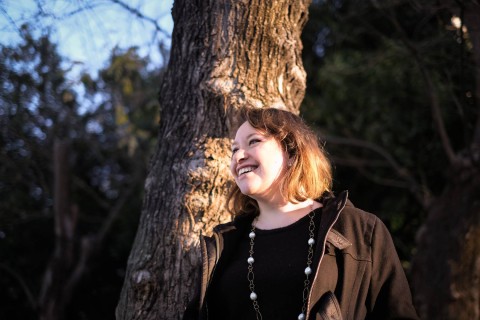Meet your new Board - Giulia Malaguarnera, Secretary – The importance of open science in research
Newsletter
The new MCAA Secretary can boast of an interesting experience in working in an international organisation dedicated to research. For her, open science is key to creating an ideal environment for researchers.

Giulia Malaguarnera in her own words
I'm an Italian researcher with a PhD in Neuropharmacology in a joint PhD programme between the University of Catania and the University of Bordeaux.
My area of research was initially translational medicine, and I studied the eye as a model of the brain during my PhD training, studying biomarkers in diabetes and Alzheimer's disease.
I completed my PhD at the Institute of Ophthalmology at the University College London (UCL), where I did my first postdoc.
I moved back to Italy for four years to work on projects with clinicians and industry in a Contract Research Organisation (CRO).
I was starting to explore start-up companies and how to be an entrepreneur, so I decided to apply for the Marie Skłodowska-Curie Actions (MSCA-IF) Sector Enterprise with a project on gut-on-chip (Goc-MM, GA n. 845036) with the aim to create a model of intestine for growing the gut microbiota at different conditions of gas and temperature.
During that period, my company moved from Rennes to Paris, and I was one of the first to follow, after a collaboration with the Institute Curie at Orsay, where I could work on the gut-brain axis.
In parallel, I was advocated for early-career researchers, being President of Eurodoc in 2020-2021. My interest in research policy increased with a particular focus on open science and research assessment, and I decided that working on open science would be my main research focus.
This is why I am now working for OpenAIRE AMKE, one of the e-infrastructures working in EOSC Future, an EU-funded Horizon 2020 project that is implementing the European Open Science Cloud (EOSC).
Giulia already has impressive experience within the European Council for Doctoral Candidates and Junior Researchers.
Different roles at Eurodoc
Elected as the social media coordinator in 2018, general Board Member in 2019 and eventually President, Giulia wore several hats in this non-profit organisation, allowing her to gain solid experience on the functioning of an international organisation dedicated to research.
Looking back at this experience, Giulia feels grateful. “My experience in Eurodoc has been key in my understanding of the research policies in Europe, and I grew up a lot by working closely with early-career researchers of 28 Countries in Europe,” she says.
The new Secretary is, therefore, ready to take up this new challenge of being part of the MCAA Board and the Policy Working Group. “I am curious to get to know the activities of the MCAA chapters,” she adds.
Giulia praises the work done by the previous MCAA Secretary, Marina Rantanen, and plans to continue the activities she launched. “Marina started the ‘Insight’, an internal newsletter, and worked on the sustainability of MCAA, both activities that I wish to keep and work further,” she explains.
But Giulia also has other plans, especially regarding the Policy Working Group and would like to work on research profiles and research assessment.
Open science in the spotlight
Open science represents a big priority for Giulia. “I believe that open science, with its principles and values, has the power to change our research culture,” she says.
For her, there are many benefits in encouraging an open science culture. “The quality and the reproducibility of the research can increase, the research is shared in the time the research is performed (reducing misconduct), and more. In general, we believe that open science pushes researchers into a more collaborative environment,” she explains.
Therefore, the new MCAA Secretary hopes to advocate for open science within the Association and train the MCAA members in this field.
“I would bring to MCAA more training activities on policy-related policies, best using open science tools to meet the funders requests, research data management, research assessment and tips and tricks for moving into a narrative curriculum for the researchers,” emphasises Giulia.
Of course, Giulia would like to thank all the members who voted for her and encourage them to get in touch with her. “If you are curious about the research policy or you would champion new tools for open science, I am always up to have a chat with you and listen to you,” she adds.
Aurélia Chaise
MCAA Editorial Team